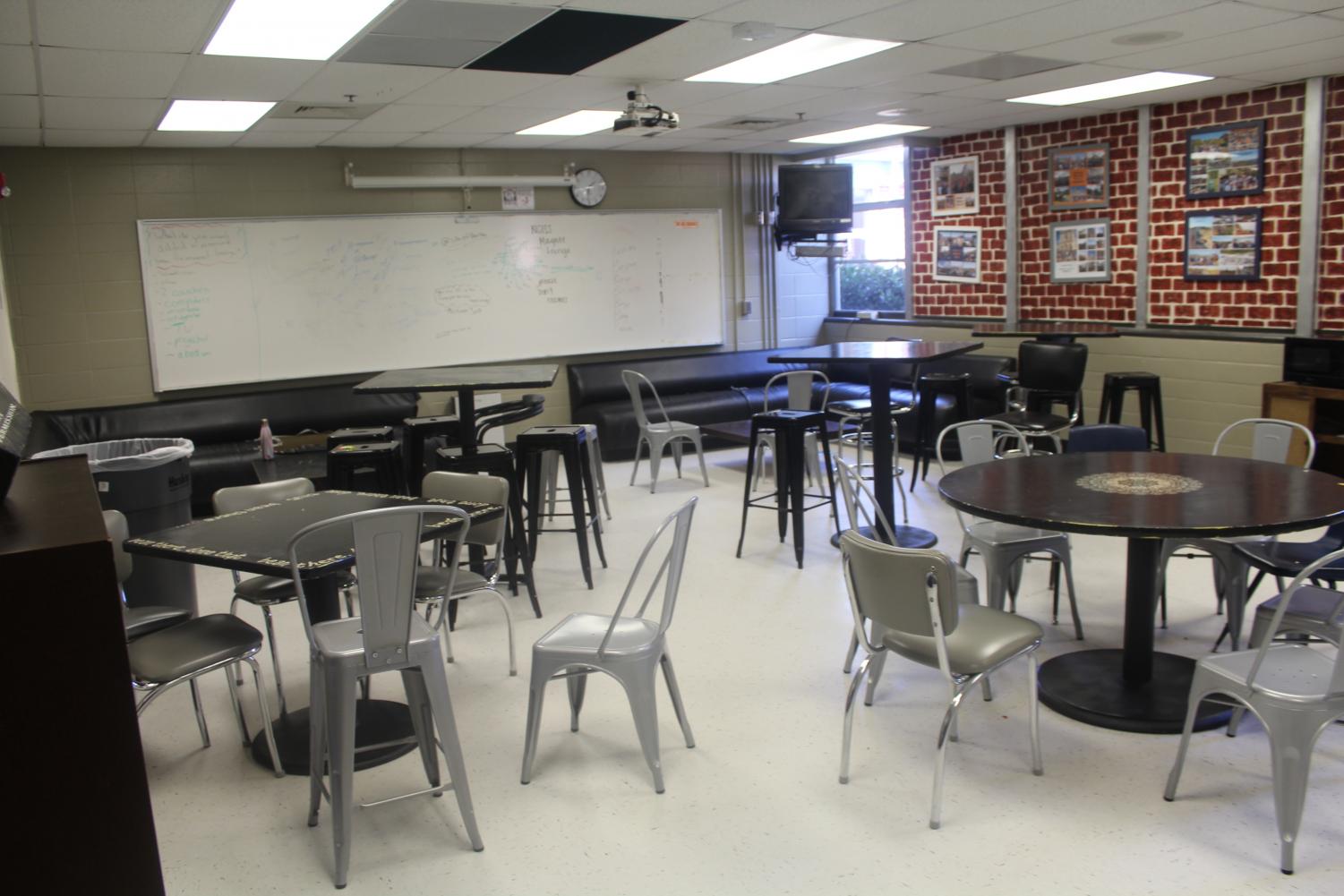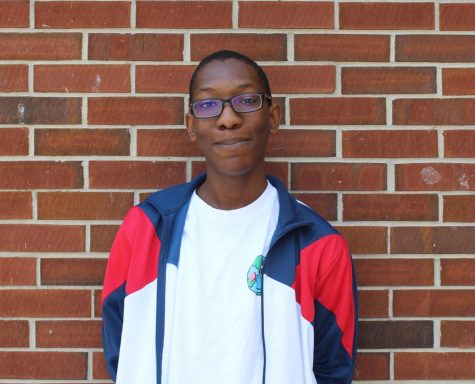Magnetic magistrates: how the NC Magnet Council shapes the future of the program
A logo for the Magnet Council, created by NC senior Ashu Ebot-Tabi. The council, first founded under the leadership of former Magnet advisor David Stephenson, consists of over 30 elected Magnet students chosen by current advisor and former AP Human Geography teacher James Auld; they meet the last third Monday of every month from 7:45 to 8:10 in the Magnet Lounge.
October 7, 2019
Overseeing anything takes a great deal of knowledge, work, and time: one needs to know the problems facing his/her constituents, skills to address those problems, and time to carry out the work. Most leaders solve this with councils and committees, as they allocate more manpower to a specific issue: for instance, Tesla CEO Elon Musk uses different committees to ensure the company runs as smoothly as possible.
The Magnet Council here at NC serves as a particularly effective example of this division of work. As the name would imply, this group exists to oversee and make independent decisions for the ever-expanding Magnet body at NC.
“The Magnet Advisory Council was created to give students a voice to help shape the program. Advanced academics carry increased expectations and a high level of rigor, so naturally, students attracted to a Magnet program have typically strong opinions. A student advisory council is critical to Magnet because it allows us to… improve it so it stays relevant. This year I received 88 applications to serve on the council. I chose 36 students and scaffolded those selected to give more representation to juniors and seniors. At 36 students, the council represents 10 percent of the entire Magnet population,” Magnet Coordinator and council head James Auld said.
Contrary to how they may seem on the outside, the Magnet Council does not work in the same way as other student leadership groups at NC: Tribal Connections, for example, make their decisions for the entire school based on a pre-existing list of concerns. In comparison, the Magnet council compiles issues (issues specific to the Magnet program & that program alone) individual members see and divide into committees to tackle them.
“What Magnet Council does is take our student’s concerns and problem-solve. We’ve done this through the use of committee and group ideas. We’ve come up with freshman tutoring opportunities, multiple events this year to engage students in their curriculum. So the Council is a great feedback group for teachers, as well as for students. I also think we do a lot of stuff for Magnet social events, as well as ushering the next generation of Magnet students. Our goal is to keep growing the Magnet class,” senior Chandler Quaile explained.
Regardless of their intentions, the work this council does really shows their worth; and that work, despite impacting the relatively small Magnet population, shows the group’s dedication to bettering the program.
“Magnet Council has pointed out issues with the Magnet program that need to be worked out. The Magnet lounge needs a renovation, so we’re actually working toward that. We’re remaking schedules to accommodate students. More field trips—since our motto is learning outside the classroom—is something we’re putting into actual action,” senior council member Katie Word said.

The Magnet Council can now sit in its newly renovated location. Funded by the NC Magnet Foundation, redecorating the lounge served as the Magnet council’s first major project of the year. Students in the group present an issue they see in the program to the group and then divide up into smaller committees to solve said problem.
Despite the importance of their work, only a handful of students (Magnet or otherwise) actually know about the council’s existence. The lack of advertisement (namely them lacking an explanatory page on the school website) plays a large role in their obscurity; this can hinder their work, mainly regarding the promotion of events. Regardless, the group remains mostly unbothered by this, due in part to their selective nature.
“I don’t think the council views this as an issue: our purpose is to improve the Magnet program and discuss broader school problems as well when applicable. I think coverage for other clubs is necessary for recruitment and showing accomplishments, what the club is doing, etc; whereas the Magnet Council isn’t a club, we had to apply and be accepted,” senior member Maggie Glancy said.
The council, despite school starting a mere two months ago, already knows their plans for the rest of the year and beyond, none of which could occur without the aid of Auld. Unlike most organization leaders, who oversee the actions of their subordinates with a close eye, Auld acts more as a supervisor, letting the students do their work and only aiding to the group when essential. Though this may mark his second year running the council, he recognizes his potential to help the program with his students.
“Entering my first year as Magnet Coordinator, the Magnet Student Advisory Council is extremely important to me. Any time you change leaders of anything, a significant opportunity exists to take some aspects of a program in a new direction. All institutions have definite inertia where things keep happening because they always have. The council will help me identify areas that could stand to be refreshed. Many more changes, mostly small this year, will also be underway soon,” Auld said.







